Fly-tipping
Fly Tipping - (Section 33 Environmental Protection Act 1990.)
We have a responsibility for collecting fly-tipping and wherever possible locate and prosecute the offenders.
The service costs the tax payer a great deal of money in time and man power.
We collect hundreds of fly tipped items every year, these range from domestic black bags, tyres, mattresses, televisions, white goods furniture and many more items that are picked up from across the borough, the roadsides, dyke bottoms, car parks, lay-bys etc.
Rubbish dumped in the countryside is an anti-social eyesore and dumped tyres and items such as mattresses can block watercourses and cause flooding. Hazardous waste, such as asbestos, can be harmful not just to the environment but to people's health.
Householders and businesses with waste to dispose of need to check the contractor has a waste carriers' licence before allowing them to take away their rubbish. If they fail to do this and the rubbish is disposed of illegally, the owner of the rubbish is liable and could face a £1,000 fine.
What a lot of people don't know is that all of these items can be disposed of and recycled FREE OF CHARGE at the household waste recycling centre at Bittern Way, Boston, PE21 7RQ.
What is fly tipping?
Fly tipping is the unauthorised deposit of household or commercial waste on land which has no license to accept waste, such as on the public highway, at recycling bring sites, grass verges, car parks, lay-bys.
Is fly-tipping illegal?
Yes. Fly-tipping is a criminal offence and you can be fined or prosecuted, with maximum penalty on conviction of £50,000 and/or imprisonment for those convicted of the offence.
We will issue a fixed penalty notice (FPN) of £1,000 for fly-tipping offences. These fixed penalty notices are an addition to our existing powers of prosecution to provide additional means of enforcement for less serious offences for fly-tipping. Instead of proceeding to prosecute, we may first offer the opportunity to pay the fixed penalty.
How much will you fine people for fly tipping?
£1,000 for each fly-tipping offence.
Is there an early payment discount?
Yes, if paid within 10 days the payment is reduced to £550.
How are FPN's issued?
FPN's will be issued once the investigation into the fly tipping offence has been investigated and completed. An environmental enforcement officer may visit you or invite you in to the Council offices where they will identify themselves, caution you, let you know that your conversation is being recorded and you will be asked for identification. The enforcement officer will explain the FPN, the Legislation being enforced, the offence committed and how you can pay the FPN. Some FPNs are issued as a result of capturing evidence of fly-tipping through overt CCTV, these FPNs are issued by Enfortis Ltd on behalf of the Council. Offenders can be identified by the vehicle registration number following a search of a DVLA database of registered keepers. The law allows the Council to issue an FPN to a registered keeper of a motor vehicle, even if the vehicle keeper is not directly involved in the fly-tipping.
What action is taken if offenders don't pay?
Offenders that do not pay within the 14 day period will be prosecuted for failing to discharge their responsibility by paying the FPN. They will appear before magistrates and dealt with by the court process.
Can someone appeal against an FPN?
Some FPN's can be appealed, if this is the case it will tell you on the FPN how and who to appeal to.
How do we spend the money received from FPN's?
A contractor carries out enforcement action on our behalf, they do not charge for this service instead they retain any receipts. Therefore the money is used for carrying out environmental crime enforcement. Should the council issue any FPN's this money is spent on education or enforcement around environmental crime.
Who is responsible for clearing fly tipping off private land?
Clearing fly tipping from private land is the responsibility of the land owner. The council are only responsible for clearing fly tipped waste from public highways and council land.
If you are a private land owner we advise that you ensure your land is as secure as practically possible in order to prevent people from dumping their rubbish on it.
How do I report a Fly Tip?
We ask that anyone finding fly-tipped waste to contact us by calling us on 01205 314200, by emailing the fly-swat team or by reporting on the report fly-tipping online form, What3Words or ClearWaste Apps. Please make a note of as many details as you can for e.g location including postcode, description of items fly-tipped, date, time and whether or not you witnessed the offence.
Where we have been notified of fly-tipped waste, we aim to remove the waste within 3 working days.





